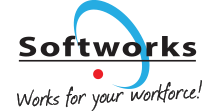In recent years, HR leaders have faced unprecedented challenges. They have had to navigate the sudden transition to remote work, cope with mass resignations, address skills shortages and recruitment difficulties, and tackle the ongoing cost of living crisis. These challenges are further compounded by economic instability and political turmoil. There is no doubt that HR leaders have been and are still being challenged on multiple fronts.
So, what does this mean for 2024? What will the focus be for HR leaders and what HR trends are we expecting in 2024?
In November and December 2023, Softworks surveyed HR professionals from around the globe, across all industries and company sizes, to find out where they would be concentrating their time, effort, and resources in 2024.
626 HR professionals responded to our survey sharing their insights and opinions with us. We are delighted to share the results with you and would like to thank everyone who took the time to complete our survey.
Demographics and Industry Breakdown
The survey was shared across all industry sectors. The industries with the highest number of respondents were from the Public Sector (16%), followed by Education (9%), Manufacturing (9%) and Non-profit (8%).
Company Size – Number of employees
In terms of organizational size, 30% of respondents came from workplaces with 100 employees or less. 26% had between 101 and 500 employees, 32% had between 501 and 5000 employees and 12% had over 5001 employees.
Top Priorities for HR Leaders in 2024 – Survey Results
1. Employee engagement and experience
The number one priority for HR leaders in 2024 is employee engagement and experience according to our survey. Employee engagement and experience is consistently a high priority for HR leaders as it is recognized as a driver of productivity, retention, and overall business success.
A highly engaged and satisfied workforce not only boosts individual performance but also fosters a positive work environment and contributes to improved organizational outcomes.
HR leaders know that by investing in strategies to enhance engagement and create a positive work environment, their organization can unlock the full potential of its workforce. Having engaged and satisfied employees is the driving force behind organizational growth and success.
2. Employee well-being and mental health
Employee well-being and mental health came in as the second priority for our HR leaders in 2024. Employee well-being and mental health have been high on HR leaders’ agendas for several years now and many organizations have been focused on areas including; supporting the mental and physical health of employees, ensuring employees are connected and feel supported, and building employee resilience through wellbeing.
In 2024, HR leaders will be prioritizing a workplace culture that promotes a positive and healthy employee experience. This is essential if they want to retain, support, and engage employees.
3. Diversity, equity, and inclusion (DEI)
Diversity, equity, and inclusion (DEI) remain high on the list of priorities for HR leaders in 2024. HR leaders recognize the value of a diverse workforce and will continue to focus on inclusivity in 2024 due to its positive effect in the workplace.
HR leaders will be focusing on creating a working environment that benefits all employees, regardless of differences such as; gender, gender identity, sexual orientation, age, race, ethnicity, socioeconomic background, and mental, and physical ability so that all employees feel a sense of belonging, value, and support from their organization.
4. Leader and manager effectiveness and development
Leader and manager effectiveness and development is also one of the top priorities for HR leaders in 2024. HR leaders realize that by continuously developing their skills, seeking feedback, and fostering an environment that encourages autonomy and innovation, leaders and managers can enhance their capabilities and drive their teams toward achieving remarkable results.
Organizations that invest in developing their leaders and managers are more likely to thrive in today’s ever-evolving business landscape.
5. Investing in or upgrading technology
Consistently high on HR leaders’ priorities is investing in or upgrading technology. As HR departments strive to keep pace with the digital age, investing in the right technology is key.
By integrating technology into their processes, HR professionals can streamline operations, improve accuracy, and focus on strategic initiatives that drive organizational growth.
From talent acquisition and onboarding to workforce management and employee engagement, technology plays a vital role in transforming HR departments into efficient and agile units that enhance overall organizational effectiveness. Embracing technology is no longer an option but a necessity for HR to thrive in the modern workplace.
6. Retaining and investing in current talent
Retaining and investing in current talent was the next priority in our survey. While HR leaders will still need to focus their efforts on recruitment and hiring, it is equally important to invest in retaining and developing the existing talent within their organizations.
There are many benefits to be gained by retaining current talent and investing in current employees including reducing recruitment, onboarding, and training new employees costs as well as increased productivity due to their knowledge and familiarity with the organization’s processes.
Furthermore, a high employee retention rate helps build a positive company culture and boosts employee morale, leading to higher job satisfaction and loyalty and in turn business success.
7. Organizational design, culture, and change management
Organizational design, culture, and change management were the next priority in our survey. A well-designed organization ensures clarity, promotes collaboration, and enables effective decision-making.
Having a strong and positive organizational culture is a very powerful driver of business success as it affects company operations, public image, employee behavior, and strategic vision.
Furthermore, change is inevitable in any organization whether driven by internal factors such as technological advancements or external factors like market trends – organizations must effectively manage change to remain competitive.
HR leaders recognize that organizational design, culture, and change management are interconnected aspects that contribute to a company’s success. By focusing on these elements, organizations can create a positive work environment, foster employee engagement, and navigate change effectively.
8. Recruitment
Recruitment will remain high on the priority list for HR leaders in 2024. In many industries, HR leaders are under huge pressure to assist their organizations in overcoming a shortage of skilled employees.
HR leaders therefore need to develop a talent management strategy to find new ways of attracting talent. If they figure this out, they will have a competitive edge over other businesses.
While some job seekers may be driven by wages and benefits, others may be more interested in more flexibility, or learning and development opportunities. Truly understanding potential candidates’ needs and wants will be key to successful recruitment in 2024.
9. Skills, training, and internal mobility
Due to skills shortages in many industries – skills, training, and internal mobility continue to be a top priority for HR leaders. By investing in this area organizations can retain their top performers as employees are more likely to stay with a company that invests in their professional growth and provides opportunities for advancement within the organization.
As technology and business needs evolve, there is a constant need for employees to acquire new skills. By providing skills training, organizations can address skill gaps within their workforce and ensure that employees have the necessary knowledge and capabilities to meet current and future job requirements.
Prioritizing skills training and internal mobility sends a message to employees that continuous learning and development are valued within the organization.
10. Workforce planning and the future of work
As the workforce becomes increasingly diverse, with multiple generations, remote workers, and gig economy workers workforce planning and the future of work will be on HR leaders’ priorities list for 2024.
HR leaders realize the need to adapt to these changes and ensure they have the right talent in place to meet business objectives. With technological advancements and automation reshaping job roles and creating skills gaps, organizations need to identify the skills required for future roles and develop strategies to bridge the gap through training, upskilling, reskilling, or hiring.
They will also need to anticipate future workforce needs and plan for changes in job roles, skills, and organizational structure. This includes succession planning, workforce analytics, and talent pipeline development to ensure a sustainable and agile workforce.
11. Reducing absenteeism
Reducing absenteeism will continue to be a priority for HR leaders as absenteeism can have a significant impact on productivity. When employees are absent, it can disrupt workflow, increase workloads for other team members, and lead to delays in projects.
Absenteeism can also be very costly for organizations. When employees are absent, it can result in increased overtime costs, temporary staffing expenses, and decreased revenue due to missed opportunities.
Reducing absenteeism will always be a priority for HR leaders as it directly impacts productivity, costs, employee morale, and well-being. By addressing absenteeism, HR leaders can create a more efficient, engaged, and healthy workforce.
12. Workforce efficiency
In the face of economic uncertainty, workforce efficiency is crucial and will be a priority for HR leaders in 2024.
Efficient work processes enable employees to complete tasks faster and this leads to increased productivity and output and allows organizations to achieve their goals.
By focusing on workforce efficiency, HR leaders can help their organizations become more agile, responsive, and adaptable to market changes, giving them a competitive edge. By streamlining processes and optimizing resource allocation, HR leaders can help reduce operational costs and maximize productivity.
13. Workplace flexibility
Workplace flexibility will also be on HR leaders’ priority list in 2024. More than ever employees value flexibility in their work arrangements. Offering workplace flexibility can help organizations attract and retain top talent who prioritize work-life balance and flexibility.
Furthermore, when employees have the flexibility to manage their work schedules and locations, they often experience higher levels of job satisfaction and engagement. This can lead to increased productivity, creativity, and overall job performance. Flexibility in the workplace can also reduce stress and burnout by providing employees with the autonomy to structure their work in a way that suits their individual needs. This can have a positive impact on employee well-being and mental health.
Overall, workplace flexibility is a high priority for HR leaders because it aligns with the changing expectations and needs of employees, and it can contribute to a more engaged, satisfied, and productive workforce.
Conclusion
There is no doubt that 2024 will be another busy year for HR departments as they navigate ongoing change and new challenges. As well as the priorities already set out in our paper the following areas were also mentioned; AI and how it can help HR, legislative compliance and health and safety, new policies and procedures, leading a multi-generation workforce, data analytics, succession planning, appraisals, redundancies, and pay and benefits.
Although HR professionals face numerous challenges, they are also in a wonderful position to drive positive change within their organization. The future of HR is exciting and full of opportunities. As technology continues to evolve, HR professionals will need to adapt and embrace the changes to effectively address the evolving needs of the workforce.
From leveraging data analytics to promoting employee well-being, HR will play a central role in shaping workplaces that foster productivity, engagement, and growth. By staying informed and investing in the right digital tools, HR professionals can lead organizations toward a successful future where human resources are optimized to their fullest potential.
Need help with your HR Priorities in 2024? Talk to Softworks!
For over 30 years, Softworks has been assisting HR leaders with their priorities. Our workforce management technology can assist you with many of the areas on the 2024 priority list including; employee engagement, workforce planning, reducing absenteeism, workplace flexibility, workforce efficiency, legislative compliance, and skills & training.
We can help you streamline and automate employee processes, increase productivity, and reduce costs through improved management, scheduling, and utilization of human resources. Softworks Workforce Management Solutions include employee time and attendance, scheduling/rostering, HR, absence management, and skills tracking enabling your organization to drive efficiencies, better ensure compliance, reduce errors, and improve reporting – all while promoting a safe and positive working environment for all employees.
For further information about Softworks solutions – Get in Touch!
Request a free Demo!
Take the first step towards a complete workforce management solution. Talk to us today!
About Tomislav Rucevic
Tomislav Rucevic, an SEO Specialist at Softworks, stands out as more than just a marketer. He’s a fervent writer and influential thinker passionate about Workforce Management, HR, and work-life dynamics. Holding an MBA in Marketing, Tomislav excels in creating content that delves into the complexities of the modern workplace.
His dedication to writing on these topics is highlighted in his MBA thesis, which examined the link between Employee Motivation and Quality Improvement. At Softworks, he expertly merges his SEO skills with his writing prowess, contributing to the company’s digital success and advancing discussions on enhancing work environments and achieving work-life balance.








